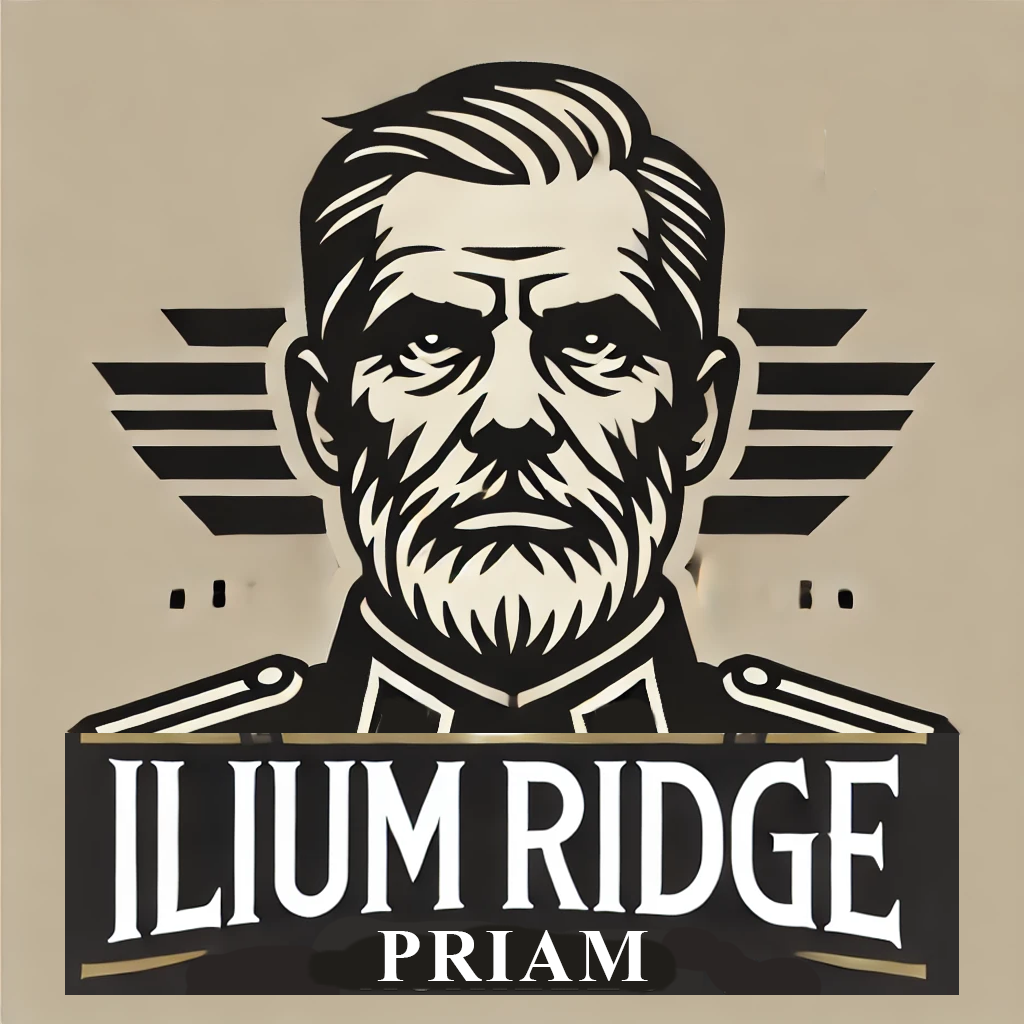One of the major figures in Ilium Ridge is Field Marshal Priam, leader of the Trojan garrison. He plays essentially the same role in both, but there are some important differences:
In the Iliad, Priam is an elderly monarch, deeply affected by the prolonged suffering of the Trojan War, burdened by the losses of his sons and the looming destruction of his city. His humility and emotional vulnerability make him one of the most humanized figures in the epic. His influence is diminishing, however: his pleas to his sons and warriors often go unheard, and he is forced to rely on the Gods for even the smallest victories.
In Ilium Ridge, Priam is a wartime general in his sixties. While capable in military strategy, he is tired of war, craving peace despite the battlefield experience that once made him effective. He takes a more active role as a commander, reflecting military competence rather than passive nobility. However, this comes with a growing realization that war exacts an unbearable cost, especially as he experiences the human toll. Despite the gift of Apollo, he is less dependent on divine intervention and more resigned to human agency and the unpredictability of war. This subtly shifts his relationship with fate, emphasizing human responsibility more than divine will.
In both versions, Priam embodies the themes of loss, leadership, and the quest for peace, though Ilium Ridge gives him a more active, modernized role as a military leader caught between war and peace. While Homer’s Priam is a tragic king dependent on the gods, our Priam is a pragmatic general haunted by his own decisions and driven by the necessity of peace, reflecting the moral complexities of 20th-century warfare.

Leave a Reply